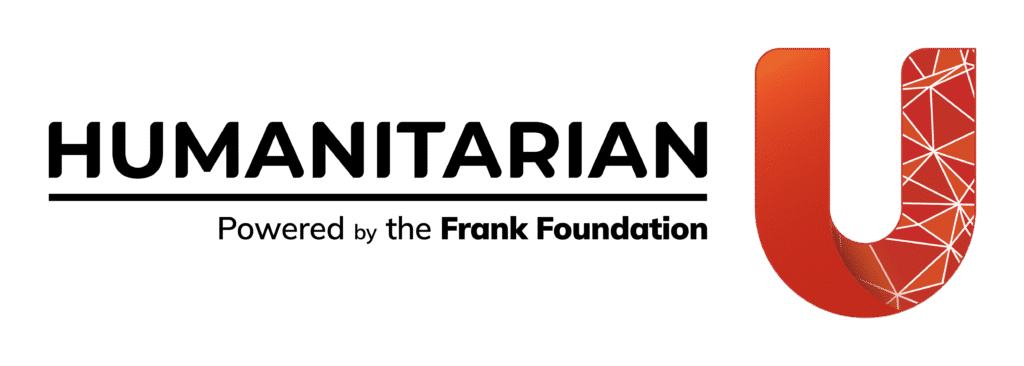In the chaotic aftermath of a sudden earthquake, a humanitarian worker must quickly assess needs, coordinate with local authorities, and implement life-saving interventions, all while navigating complex ethical dilemmas and ensuring their own safety. This scenario illustrates why proper training isn’t just beneficial for humanitarian professionals, it’s essential. Humanitarian U has emerged as a leader in this specialized educational space, offering rigorous, field-focused training that transforms compassionate intentions into effective action.

Beyond Theory: Practice-Driven Learning
What distinguishes Humanitarian U from traditional academic programs is its unwavering commitment to practical application. Founded and led by seasoned humanitarian professionals, Humanitarian U’s curriculum is forged from real-world experience.
“Our courses are designed by practitioners for practitioners,” explains the Humanitarian U approach. This philosophy manifests in scenario-based learning modules that simulate the unpredictability of field conditions. Participants don’t just memorize humanitarian principles, they apply them to complex situations modeled after actual field experiences.

Specialized Course Offerings
Humanitarian U offers several specialized courses designed to build critical field competencies:
- Core Humanitarian Certification: A comprehensive program delivered via DisasterReady.org, offering foundational training in humanitarian principles, standards, and field competencies.
- Disaster Management and Emergency Planning: Equips learners with practical tools and frameworks for effectively preparing for, responding to, and recovering from disasters and emergencies.
- Refugee Health: Focuses on the unique health challenges faced by displaced populations and strategies for effective health interventions in humanitarian contexts.
- Human Rights and Public Health: Explores the vital intersection between human rights and public health, especially in conflict and crisis-affected settings.
- Pandemic Etiology, Preparedness, and Response: Covers the origins of pandemics and practical approaches to preparedness and response, with a focus on global health security.
Bridging the Experience Gap with Simulated Field Challenges
One of the biggest hurdles for aspiring humanitarians is the requirement for prior field experience. Humanitarian U tackles this problem head-on with immersive, scenario-driven coursework that mirrors the complexity of real-world deployments. Learners take part in virtual field assessments, solve logistical and ethical dilemmas under simulated pressure, and build confidence in decision-making, all without needing to be physically deployed.

Globally Recognized, Standards-Based Credentials
The courses offered by Humanitarian U aren’t just educational, they’re industry-aligned. Built around trusted frameworks like the Core Humanitarian Standard (CHS), Sphere Standards, and Inter-Agency Standing Committee (IASC) guidelines, the credentials learners receive are respected across the sector. These certifications help open doors and validate readiness for operational roles.
Looking Ahead: Training for the Next Generation of Humanitarians
The humanitarian landscape is rapidly changing. Climate disasters, digital displacement, and emerging health threats require new skills and perspectives. Humanitarian U is actively expanding its curriculum to meet these evolving demands, including training on climate adaptation, digital response tools, and trauma-informed care. By staying responsive to the sector’s shifting needs, Humanitarian U ensures its learners remain not just relevant, but indispensable.
Ready to take the next step in your humanitarian career?
Explore Humanitarian U’s professional development courses at HumanitarianU.org.
